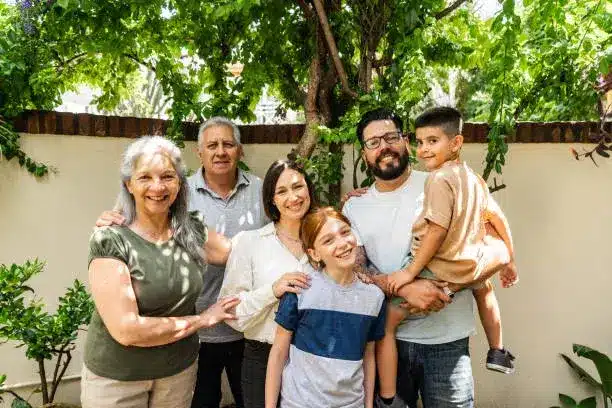Death remains one of life’s most challenging conversations, yet planning for it can bring unexpected comfort. When families face the loss of a loved one, finding meaning in the death becomes essential. Making decisions about final arrangements often feels overwhelming during such periods of grief. The choice of contributing to medical advancement offers a path towards purpose that could create a lasting impact.
Many families discover profound comfort when a body donated to science creates educational opportunities for future doctors. This decision transforms grief into something meaningful, knowing their loved one continues helping others learn. Medical schools depend on these generous contributions to train healthcare professionals properly. The donation process provides families with dignity while supporting vital medical education and research advancement.
Understanding the Deeper Impact of Body Donation
Creating Lasting Educational Value: Donated bodies become invaluable teaching tools in medical schools across the country. Students learn anatomy, surgical techniques, and diagnostic procedures through hands-on experience. This direct learning approach produces more skilled healthcare professionals. The knowledge gained benefits countless future patients who receive better medical care.
Supporting Medical Research Advancement: Research facilities use donated bodies to develop new surgical techniques and medical devices. Scientists study disease progression and treatment effectiveness through careful examination. These discoveries lead to improved treatments for living patients. The contribution extends far beyond individual learning to benefit entire medical communities.
The Emotional Journey of Making This Decision
Finding Peace Through Purpose: Families often report feeling comforted knowing their loved one’s final act is helping others. This sense of purpose can ease the grieving process significantly. The decision creates a positive legacy that extends beyond death. Many find solace in contributing to medical knowledge that saves lives.
Transforming Grief Into Meaning: Rather than focusing solely on loss, families can celebrate their loved one’s continued contribution. This perspective shift helps process difficult emotions more effectively. The donation becomes a final gift to humanity. Grief transforms into pride about making a difference in medical education.
Practical Considerations for Body Donation
Eligibility and Requirements: Most donation programmes accept bodies regardless of age or medical condition. Certain infectious diseases may prevent donation for safety reasons. Families should contact programmes directly to discuss specific circumstances. Early registration often simplifies the process during difficult times.
Financial Benefits for Families: Body donation typically eliminates funeral home costs and cremation expenses. This financial relief helps families during an already stressful period. The donation programme usually handles transportation and final arrangements. Cremated remains are typically returned to families after the educational process concludes.
Starting Important Conversations About Donation
Approaching Family Discussions: Begin conversations about body donation when emotions aren’t heightened by immediate loss. Share articles or information about the medical benefits of donation. Discuss personal values about helping others and contributing to society. Allow family members time to process and ask questions.
Addressing Common Concerns: Some families worry about religious considerations or cultural traditions surrounding death. Research shows most major religions support body donation as charitable acts. Cultural practices can often be accommodated within donation programmes. Open dialogue helps address specific concerns and misconceptions.
The Registration Process Explained
Documentation and Consent: Registration involves completing detailed forms and providing medical history information. Legal documentation ensures the donation proceeds according to wishes. Family members should be informed about the decision beforehand. Clear communication prevents confusion during emotionally difficult times.
Key steps in the registration process include:
- Completing comprehensive application forms with personal and medical information provided to programme administrators.
- Obtaining witness signatures on consent documents ensuring legal validity of donation decisions made.
- Providing emergency contact information so programmes can coordinate arrangements efficiently when needed.
- Discussing any special requests or concerns with programme coordinators to address individual circumstances.
Timeline and Expectations: The body typically remains with the medical programme for several years. Educational use varies depending on the specific programme’s needs. Families receive updates about the donation process when requested. Final cremation and return of remains occurs according to programme policies.
Benefits Beyond Individual Families
Training Future Healthcare Professionals: Medical students gain irreplaceable experience through anatomical study using donated bodies. This training produces more competent doctors, nurses, and healthcare specialists. Better-trained professionals provide improved patient care throughout their careers. The ripple effect benefits countless patients over decades.
Advancing Medical Knowledge: Research conducted using donated bodies leads to breakthrough discoveries. New surgical techniques are developed and refined through careful study. Medical device testing ensures safer, more effective treatments. These advances improve healthcare outcomes for living patients worldwide.
Conclusion
Body donation represents a meaningful way to create lasting purpose from loss whilst supporting vital medical education. This decision offers families emotional comfort through knowing their loved one continues helping others learn and heal. The choice provides financial relief during difficult times and contributes to advancing medical knowledge. Consider discussing body donation options with family members to explore whether this path aligns with your values and wishes for creating a meaningful legacy.
Also Read-Creative Programs for Building Life Skills










